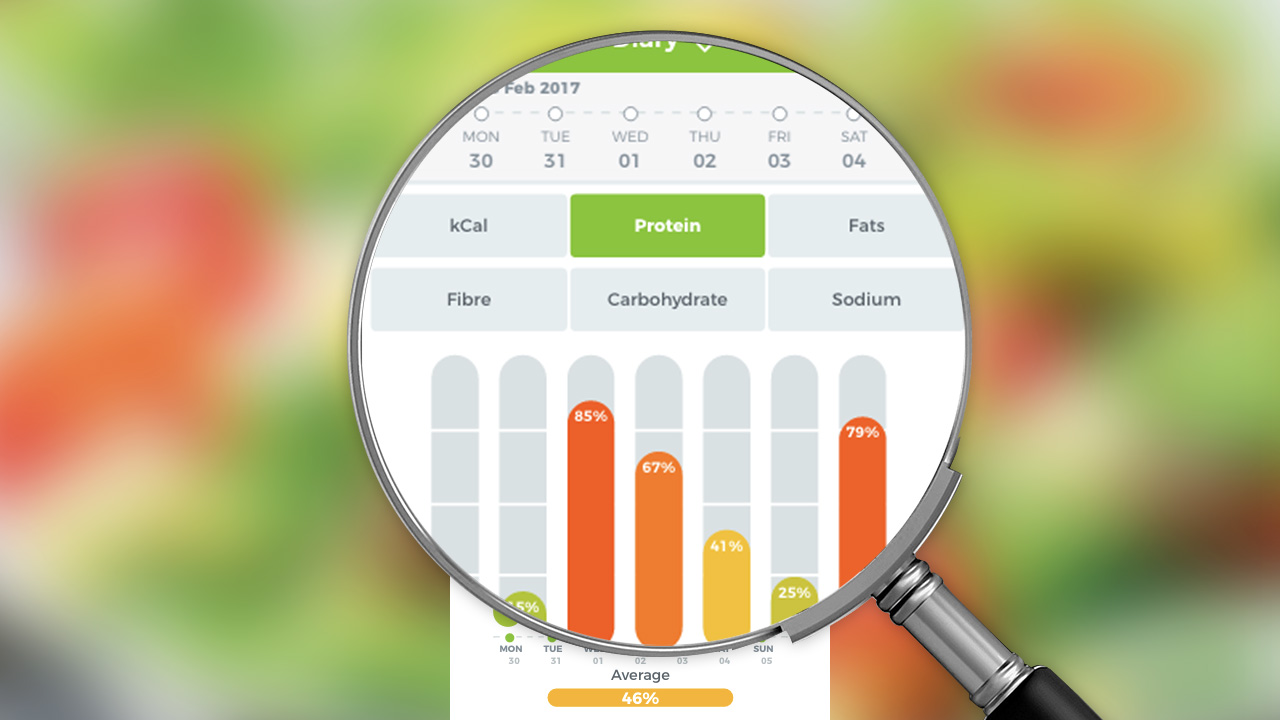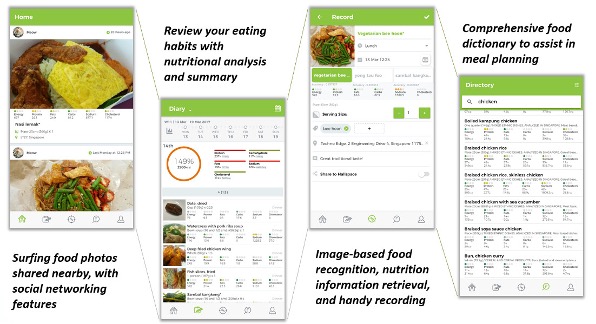Our Mission
Importance of food intake data

Large-scale food intake data plays a significant role in revealing the dietary information and knowledge of patients, posing a profound impact on humans’ health and well-being. For instance, long-term consumption of unhealthy foods increases the risk of developing diseases such as diabetes, hypertension, and hyperlipidemia.
In this sense, such food data is an essential data source for facilitating different healthcare analytic applications such as disease diagnosis, chronic disease progression modeling, etc. Therefore, there is an increasing demand for food data for diet assessment and disease management, and further for well-being.

Food(lg)
Application
We build Food(lg) to calculate daily nutrient estimates with the journaled entries for
achieving
a well-balanced diet.
Powered by a deep-learning framework, and based on standard nutritional guidelines,
Food(lg) has been used successfully in Ng Teng Fong General Hospital to help patients with
prediabetes.
It can be downloaded on the APP Store or
Google Play.
Alternatively, you can view on Desktop.

Record & monitor with ease
Food(lg) provides a quick and easy way for recording dietary intake, daily and weekly reports of progress, as well as remote monitoring by healthcare professionals for timely and meaningful feedback.

Healthy eating lifestyles
Food(lg) helps users to develop healthy eating lifestyles, with attracting functions, such as surfing food photos, reviewing eating habits, recording food, and planning healthy meals.

FoodSG-233 Dataset
Released localized Singaporean food dataset
Localized food datasets capture the unique characteristics of each country’s dish
varieties,
cooking styles, and food ingredients, and are therefore highly indispensable and
medically
meaningful in contributing to people’s health management in a specific country.
We release a localized Singaporean food dataset FoodSG-233 with a systematic cleaning
and
curation
pipeline for promoting future data management research in food computing.
233
Popular Singapore Dishes
13
Main Food Groups
209, 861
Food images
Download
FoodSG-233 dataset
We incorporate 233 popular Singaporean dishes from 13 main food groups and then crawl candidate images from different search engines. After curation and cleaning, we end up with 209, 861 images as the FoodSG-233 dataset.
Application form
Terms of access
1. Researcher shall register for dataset application.
2. Researcher shall only use the dataset for non-commercial research and educational
purposes.
3. Researcher is not permitted to distribute copies of the dataset or grant access to the
datasets
to
any other parties.
4. Access to the dataset will only be granted on an individual basis. Each researcher working on
a
scientific project and/or publication using the dataset must submit a separate application.
Citation
Kindly cite the following paper if you use the dataset:
"From Plate to Prevention: A Dietary Nutrient-aided Platform for Health Promotion in Singapore", K.
Zheng, T. Nguyen, J. H. S. Chong, C. E. Goh, M. Herschel, H. H. Lee, C. Liu, B. C. Ooi, W. Wang, J.
Yip.
Publications
From Plate to Prevention: A Dietary Nutrient-aided Platform for Health Promotion in Singapore
K. Zheng, T. Nguyen, J. H. S. Chong, C. E. Goh, M. Herschel, H. H. Lee, C. Liu, B. C. Ooi, W. Wang, J. Yip. Preprint, 2023.
eDental: Managing Your Dental Care in Diet Diaries
K. Zheng, T. Nguyen, C. Liu, C. E. Goh, B. C. Ooi. CIKM, 2022.
Convolutional neural networks for food image recognition: An experimental study
Y. S. Ng, W. Xue, W. Wang, P. Qi. MADiMa, 2019.
Resolving the Bias in Electronic Medical Records
K. Zheng, J. Gao, K. Y. Ngiam, B. C. Ooi and W. L. J. Yip. ACM KDD, 2017.
Capturing Feature-Level Irregularity in Disease Progression Modeling
K. Zheng, W. Wang, J. Gao, K. Y. Ngiam, B. C. Ooi and W. L. J. Yip. CIKM, 2017.